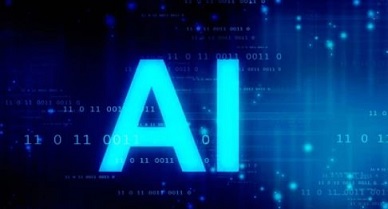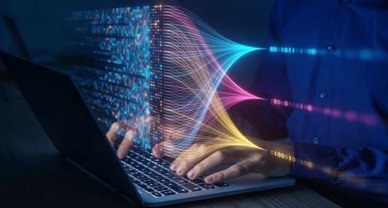Conundrum Involving The Ownership Of The Work Created By Ai
Introduction
Any literally or artistic work that is original and creative i.e.; not copied from anywhere by the owner is protected under Copyright Act, 1957. The Act is not providing protection to AI without human intervention from infringement instead it only provides protection to humans and AI generated work with human intervention from infringement. Central Board of Secondary Education claimed in a case, that they are the author of the said question paper and should be entitled to get the copyright protection for it, to this court said that unless they are capable of proving that they hire a natural person for doing compilation, court will not allow the copyright protection for CBSE[1]. Earlier Computer generated work are mainly dependant on and created by the Programmer but with the passage of time, technological advancement increased results in development in AI which leads to AI to create work without any human input. From here it can be said that.
[Image Sources : Shutterstock]
the work created by AI can be classified into two parts. Firstly, work generated from AI with input, in this case command is given by the human or programmer and get output out of it with the help of their creative and innovative ideas hence the ownership and authorship can be ascribed to the human who has given innovative inputs to the AI. Secondly, work generated by AI without human interference, when input is not given by the human to the work generated by AI, then the ownership as well as authorship will be given to the developer of the program creating AI that is to the person who holds copyright over the AI software. AI calculations gain from the information sources gave to them by developers. They gain from this information to create another piece of work, settling on free choices all through the cycle to figure out what the work resembles[2]. In any case, this doesn’t conceal the way that AI regardless of whether able to settle on a free choice isn’t subject to human-took care of calculations and programming, the work that is made is only a high level/changed form of the given information took care of by the software engineer. Thus, most would agree that AI-created work does not have the component of originality.
Issues
There are many issues in granting ownership to AI.
- Firstly, Originality, Section13 of the said act, to claim ownership over work (literally, musical, dramatic) created by AI, originality in work is an essential component, that can be detected by originality tests. AI can explore data or information that is accessible in public domain or copyright of other person and can investigate or work upon that information but only to that extent which the software program permits.[3] ‘Originality’ under intellectual property regulation signifies ‘the declaration of the thought should start from the creator as in the work should not be a duplicate of another work’.[4]Artificial intelligence is subject to its programming, to produce an outcome. Therefore, AI may not equipped for generating an original work. Making AI as a separate legal entity may prompt to copyright infringement to those who provide the said data or information in public domain. Hon’ble Court held tin a case that “To guarantee copyright in a compilation, the creator should provide the material with exercise of his skill and judgment. The subordinate work created by the creator should have a few recognizable highlights and flavour.”[5]
- Second one is Accountability, if ownership is provided to AI, it will become challenging to make the creator or owner responsible assuming that the work generated by the AI contains some disgusting or corrupt material. In this case no action can be taken against the AI except shutting down the AI. It isn’t practical to allow ownership to the AI.
- Thirdly, under Section 17 of the said act, when the rights of ownership have to be transferred to anyone else under an agreement then the ownership transfer will be challenging to lay out as the AI can’t approve its developer , to turn into the owner of the work. Accordingly, assuming the ownership is conceded to AI, making such a transfer would be troublesome
- Fourthly, under Section 57, author has Moral rights, incorporates right to paternity and right to integrity. In this way, when an AI is perceived as a creator of the work, AI will most likely be unable to find out any demonstration has impacted the owner of the work. Moral rights have a greater amount of human sentiments appended to the work, and thus, these privileges may not be appropriate for implementation by the AI.
- Fifth one is an Infringement as AI is using the information or data present in the public domain which is in a way or other copyright of someone so if any infringement is done by the side of AI then, putting the liability will be extremely challenging. Hence, ownership is not granted to the AI. Australian Federal Court found that the HTML codes were not at risk to copyright assurance as they were not made by the human makers[6].
According to the Indian Copyright laws, there is still a lot of equivocalness with respect to the ownership for non-human elements like computerized reasoning that is Artificial Intelligence. There is no substantial point with respect to the first owner of a non-human element and the ownership transfer is given in Section 17 of the said act. Also, Moral rights of the creator is given in under Section 57 of the said act, are not relevant to the Artificial Intelligence. Additionally, there is an issue related to the accountability viewing Artificial Intelligence with regards to who will be at risk for any bad behaviours done by an AI. One can’t punish a non-human element as it has no chance. Accordingly, Indian copyright regulation isn’t adaptable. Hence, there is not really any possibility for Artificial Intelligence to get separate ownership.
With the progression in innovation of AI it is not an impractical notion to give acknowledgment to the work created by it. Saudi Arabia has allowed citizenship to an AI humanoid robot, Sophia in 2017. This additionally implies that they will guarantee licensed innovation assurance as for Intellectual Property Rights they will make. As indicated by him, “progressed robots will reserve the option to wed, own property and vote in everyday decisions by 2045.[7]We can expect a huge change in such manner right away. The said act was enacted in 1957 and AI has acquired unmistakable quality far beyond that. Be that as it may, having a decent methodology for this new space of work is similarly vital.
Conclusion
Since the Industrial Revolution corporate entities have continually received the legal status of an artificial person and it has carried with itself certain other ancillary rights. This essentially shows that change is the only constant and therefore we cannot hold onto the old conventional ways of thinking and obstruct creativity.
Artificial Intelligence and its scope needs to expanded and there is a necessity to dive into and understand how artificial intelligence is making progress in leaps and bounds in works of art, music, games, etc., to get the status of an author/joint author or any status to properly acknowledge its contribution. The Shibuya Mirai artificial intelligence is a pioneer example where it assumes a residency in Tokyo, Japan. In-fact a novel written by Shibuya Mirai has been recognised as one of the best literary works in Japan. This essentially clears any kind of doubt regarding the capability of an artificial intelligence program and lays down a foundation where AI should be given a status in Copyright Law.
If we look back, there have been several instances where non-human actors have gotten copyright protection for their work, for instance, the character of a money in the Naruto anime, and very absurdly a ghost has allegedly been granted with copyright protection, which very pertinently births the question that why not artificial intelligence then? The primary objective of copyright has always been to multiply creativity as is already visible & undoubtedly, AI’s entrance in the copyright world has had expanded the horizon and paved out new areas of development in the field of Intellectual Property Especially Copyright. So, what’s the point of not granting AI the status of copyright protection?
It is said that a work of an author is the mirror image of his/her personality. The concept of moral rights is very well accepted in the current Indian copyright regime where an author cannot be stripped of their right to paternity and right to integrity even by way of an agreement.
In the current situation the work which an artificial intelligence creates by own permutation and combination, can be awarded moral rights or at least the right to paternity is granted along with recognition. Armouring artificial intelligence with moral rights will be importantly the first step in its acceptance & growth until a major overhaul or statutory amendment is effected upon that would give space to all forms of artificial intelligence to develop and multiply.
Therefore, where non-human actors have been accorded with copyright protection, serving no such protection to the AI-programs is indeed unethical & should subsequently be thought upon.
Author: Chhavi Singh, A Student at KIIT School Of Law, in case of any queries please contact/write back to us at support@ipandlegalfilings.com or IP & Legal Filing.
References
“India: Artificial Intelligence And Copyright – The Authorship”Mondaq, December 18, 2019, available at: https://www.mondaq.com/india/copyright/876800/artificial-intelligence-andcopyright-the-authorship.
Ili.ac.in(internet source)
https://www.mondaq.com/india/copyright/876800/artificial-intelligence-and-copyright-the-authorship
https://www.wto.org/english/tratop_e/trips_e/colloquium_papers_e/2018/chapter_13_2018
https://indiaai.gov.in/ai-standards/ai-and-intellectual-property-rights
[1] Rupendra Kashyap vs Jiwan Publishing House Pvt Ltd.(1996) 38 DRJ 81 (India).
[2] Supra note 17.
[3] Hristov, supra, note 18.
[4] University of London Press Ltd v University Tutorial Press Ltd [1916] 2 Ch 601, 608.
[5] Lucy Rana and Meril Mathew Joy, “India: Artificial Intelligence And Copyright – The Authorship”Mondaq, December 18, 2019, available at: https://www.mondaq.com/india/copyright/876800/artificial-intelligence-andcopyright-the-authorship.
[6] Acohs Pty Ltd v Ucorp Pty Ltd, Acohs(2012)FCAFC 16
[7] Anthony Cuthbertson, “Robots will have Civil Rights by 2045, Claims Creator of ‘I will Destroy Humans’ Android”, Idependent UK, May 25, 2018, available at: https://www.independent.co.uk/life-style/gadgets-andtech/news/robots-civil-rights-android-artificial-intelligence-2045-destroy-humans-sophia-singularity-a8367331.html (last visited on December 3, 2020).



